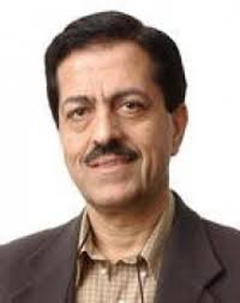Heart failure sounds like a scary term, doesn’t it? But with the right information and guidance, navigating through what it means, what causes it, and how it’s treated can be a bit less daunting. According to experts like Dr Fazal Panezai, understanding heart failure is the first step toward managing it effectively. Let’s break this down into simpler terms to get a clearer picture.
What Exactly Is Heart Failure?
First off, heart failure doesn’t mean your heart has stopped working. It means your heart isn’t pumping blood as well as it should be. It’s a serious condition, yes, but with proper treatment and lifestyle changes, many people continue to lead fulfilling lives.
Causes Of Heart Failure
Heart failure can be caused by a myriad of factors. Essentially, anything that damages your heart or puts extra strain on it can be a culprit.
Common Causes Include:
- Coronary artery disease
- High blood pressure
- Previous heart attack
- Diabetes
- Obesity
- Certain medications
Understanding these risks can help in taking proactive steps towards heart health.
Recognizing The Symptoms
Symptoms of heart failure can be subtle or quite noticeable, depending on the severity of the condition. Dr Fazal Panezai often advises his patients to watch for key signs that might indicate heart failure.
These symptoms might include:
- Shortness of breath, especially when you exert yourself or when you lie down
- Persistent coughing or wheezing
- Swelling in your legs, ankles, or feet
- Feeling tired or fatigued
- Sudden weight gain from fluid retention
If any of these ring a bell, it’s crucial not to ignore them. Getting checked out early can make a significant difference.
Treating Heart Failure
While heart failure is a chronic condition, treatments can help manage symptoms and improve quality of life. The approach depends on the type and severity of your heart failure.
- Lifestyle Changes: Making healthy choices is foundational. This might mean adjusting your diet, getting regular exercise, and monitoring your weight and fluid intake. These changes can help alleviate some symptoms and prevent the condition from worsening.
- Medications: Dr Fazal Panezai points out that there are several types of medications that can play a crucial role in treatment. These drugs might include those that lower blood pressure, reduce fluid buildup, or improve heart function.
- Advanced Therapies: For some, medication and lifestyle adjustments might not be enough. Advanced treatments such as surgery or medical devices like pacemakers may be necessary. Your healthcare team will guide you through these options if they’re right for you.
Living With Heart Failure
Living with heart failure requires ongoing management and care. It’s about more than just treatment—it’s about adjustments and adaptations that make life smoother. Regular check-ups are essential. These visits aren’t just about monitoring and medications; they’re also an opportunity to discuss how you’re feeling, both physically and emotionally.
Final Thoughts
Understanding heart failure is the first step in managing it effectively. By recognizing the causes, symptoms, and embracing the treatments available, many people with heart failure continue to live active and enjoyable lives. With the support of healthcare professionals, there’s every reason to remain hopeful and proactive in managing heart health. Remember, knowledge is power—especially when it comes to heart failure.





